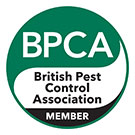GOT PEST PROBLEMS, GET IN TOUCH FOR A FREE QUOTE
- Telephone0141 432 0433
- Emailinfo@allpestservices.co.uk
- REQUEST A CALLBACK
The main species in the UK is the Common Rat [Rattus norvegicus], also known as Sewer, Brown or Norway rat. Historically the Black Rat [Rattus Rattus], responsible for the Bubonic Plague, was the dominant species but is now rare and confined to port areas.
The Common Rat is widely distributed and abundant and occurs both indoors and outdoors. They are rodents and have a single pair of incisor teeth in the upper and lower jaws that grow continuously.
They have a need to gnaw in order to control the growth of these teeth and to maintain their sharpness. Given an edge on which to bite rats can gnaw through wood, plastic/UPVC, and soft metals such as lead and even aluminium.
Rats grow to approx. 270mm, taking approx 10-12 weeks between birth and sexual maturity. Lifespan is approx. 9-18 months. The female has up to 6 litters in her lifetime. Rats can enter buildings both above ground and below it, often entering via defective drains, sewers or pipes.
Apart from the damage that rats can cause by gnawing through pipes, cables and building fabric they are also carriers of a number of harmful diseases and food borne illnesses including Salmonella, Weils Disease (Leptospirosis), E-Coli, Campylobacter-Entiritis and Shigella (Dysentry).
Their droppings and fur poses a significant hazard of contamination of food products and food preparation and storage areas. Because they are incontinent they also urinate everywhere they go.
Do you have a problem with rats? We can help…
Our staff have been specifically trained to undertake all types of insect control work and have many years experience in the profession. All our staff have achieved the Royal Society for Public Health Level 2 Award in Pest Management which is a requirement for members of the BPCA. All our staff also have specific qualifications in Insect Control and the Safe Use of Pesticides and are Wildlife Aware accredited.
For some properties where there is a high risk of repeated infestation or because of the severe consequences of infestation a regular inspection and maintenance programme is recommended. This particularly applies to food retailers or manufacturers where infestation could lead to prosecution, fines or even closure, not to mention a lot of bad publicity. For this reason the vast majority of supermarkets, food shops, cafes and restaurants have a regular preventative maintenance service. All Pest Services can provide a free site survey to establish requirements and offer a bespoke tailor-made service.
Causing harm to any species, whether insect or otherwise, is a last resort. Users of pesticides must first determine whether or not it is practicable to control the infestation without using a chemical – in many cases it is not but other techniques are available and should be considered, particularly trapping and pest- proofing. Despite the popular and widely held belief to the contrary there are few properties that cannot be made vermin-proof, especially detached properties, whatever their age – however it is a skilled technique that few pest control operatives excel at. All Pest Services specialise in this field and can carry out vermin proofing of anything from an individual flat up to a mansion or factory.
Our staff have been specifically trained to undertake all types of insect control work and have many years experience in the profession. All our staff have achieved the Royal Society for Public Health Level 2 Award in Pest Management which is a requirement for members of the BPCA. All our staff also have specific qualifications in Insect Control and the Safe Use of Pesticides and are Wildlife Aware accredited.
For some properties where there is a high risk of repeated infestation or because of the severe consequences of infestation a regular inspection and maintenance programme is recommended. This particularly applies to food retailers or manufacturers where infestation could lead to prosecution, fines or even closure, not to mention a lot of bad publicity. For this reason the vast majority of supermarkets, food shops, cafes and restaurants have a regular preventative maintenance service. All Pest Services can provide a free site survey to establish requirements and offer a bespoke tailor-made service.
Causing harm to any species, whether insect or otherwise, is a last resort. Users of pesticides must first determine whether or not it is practicable to control the infestation without using a chemical – in many cases it is not but other techniques are available and should be considered, particularly trapping and pest- proofing. Despite the popular and widely held belief to the contrary there are few properties that cannot be made vermin-proof, especially detached properties, whatever their age – however it is a skilled technique that few pest control operatives excel at. All Pest Services specialise in this field and can carry out vermin proofing of anything from an individual flat up to a mansion or factory.
Apart from the obvious situation where they are seen, their presence can be determined most easily by the presence of droppings. This is particularly true for mice where the droppings tend to be scattered. Rats often leave their droppings in a pile so these may not necessarily be seen. In addition the presence of mice and rats is often heard before there are any obvious visible signs or they may betray their presence due to damage to foodstuffs or other materials. A skilled pest control technician may also be able to identify smear marks, urine pillars, rodent hairs or minor rodent gnaw or scratch marks.
Rats and mice can cause significant problems, such as damage to pipes and wires (including causing fires), damage and contamination of food, spread of disease (such as Weil’s disease, salmonella, foot and mouth, typhoid and dysentery, lymphatic meningitis etc.). In addition they can cause structural damage to timbers and distress and alarm.
GOT PEST PROBLEMS, GET IN TOUCH FOR A FREE QUOTE










